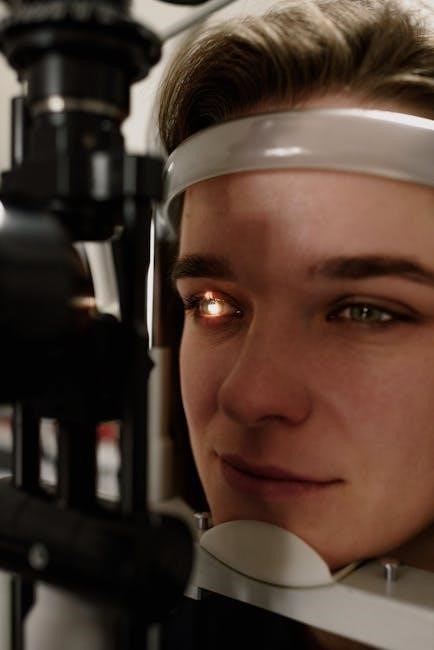correct not politically correct pdf
Political correctness emerged in the 1980s, focusing on language sensitivity to avoid discrimination. It sparked debates over free speech, social inclusion, and cultural norms, shaping modern discourse.
1.1 Definition and Historical Context
Political correctness refers to language and practices avoiding discrimination, often addressing race, gender, and sexuality. Historically, it emerged in the 1980s, sparking debates over free speech and cultural norms. Critics argue it limits expression, while supporters see it as fostering inclusivity. The term has evolved, influencing modern discourse and societal values, particularly in education and media, reflecting broader cultural shifts toward diversity and sensitivity.
1.2 The Evolution of Political Correctness in Modern Society
Political correctness has evolved significantly, from its origins in 1980s academia to its widespread societal impact today. It now influences media, education, and workplace policies, promoting inclusivity but also sparking debates over free speech. Critics like Frank Turek argue it stifles open dialogue, while supporters see it as essential for social progress and equality, reflecting ongoing tensions between tradition and modernity in cultural and political landscapes.
Overview of the Book “Correct, Not Politically Correct”
Frank Turek’s book challenges political correctness on same-sex marriage and transgenderism, using evidence and reasoning. A crucial read for understanding societal implications.
2.1 Author Frank Turek and His Perspective
Frank Turek, an award-winning author, challenges political correctness by addressing same-sex marriage and transgenderism. He uses evidence and reasoning, not religion, to argue his points. Turek emphasizes the societal impacts of these issues, asserting that everyone, including children and LGBTQ individuals, could be harmed. His perspective combines logic with empathy, aiming to encourage critical thinking and informed discourse on controversial topics.
2.2 Key Themes: Same-Sex Marriage and Transgenderism
Frank Turek’s book focuses on same-sex marriage and transgenderism, arguing against their legalization. He asserts that these practices harm society, including children, nations, and even LGBTQ individuals. Turek challenges the notion of equal rights and discrimination, arguing that evidence and reasoning, not religion, should guide the debate. His analysis highlights the broader societal implications and potential consequences of redefining marriage and gender roles.
The Argument Against Same-Sex Marriage
Frank Turek argues that same-sex marriage harms children and society, using evidence and reasoning to challenge redefining marriage and addressing objections on equal rights and discrimination.
3.1 Legal and Social Implications
Frank Turek examines the legal and social implications of same-sex marriage, arguing that redefining marriage harms societal structures and family dynamics. He contends that children suffer without a traditional nuclear family setup. Using evidence, Turek challenges the notion that same-sex marriage benefits society, emphasizing potential long-term consequences. He addresses objections about equality and discrimination, asserting that same-sex marriage undermines foundational social norms.
3.2 Impact on Children and Families
Frank Turek argues that same-sex marriage and transgenderism negatively impact children and families. He emphasizes that traditional family structures are essential for child development, claiming that children thrive best with a biological mother and father. Turek suggests that redefining marriage leads to emotional and psychological harm for children, as they may experience instability and confusion. He also highlights societal risks, such as normalizing family structures that lack biological parents.

The Debate on Transgenderism
Transgenderism sparks intense debate over identity, rights, and societal norms. Critics argue it challenges biological truths, while supporters emphasize personal freedom and acceptance, highlighting complex psychological and cultural dimensions.
4.1 Psychological and Medical Considerations
Frank Turek examines the psychological and medical implications of transgenderism, questioning its societal acceptance. He argues that encouraging gender transitions may lead to long-term emotional and physical harm, citing potential regret and medical complications. Turek emphasizes the need for cautious, evidence-based approaches to ensure the well-being of individuals, particularly children, who may experience confusion and irreversible consequences from hasty decisions.
4.2 Societal and Cultural Consequences
Frank Turek argues that redefining marriage and gender norms undermines societal stability. He contends that accepting transgenderism and same-sex marriage challenges traditional values, leading to cultural shifts that erode foundational social structures. Turek emphasizes the importance of preserving biological and historical understandings of gender and marriage to maintain cultural coherence and avoid further fragmentation of society.
The Role of Evidence and Reasoning
Frank Turek emphasizes using evidence and reasoning to challenge PC narratives. He presents data to counter arguments on same-sex marriage and transgenderism, focusing on societal implications.
5.1 Using Data to Challenge Political Correctness
Frank Turek employs empirical evidence to argue against same-sex marriage and transgenderism. By presenting statistical data, he contends these practices harm individuals, families, and society at large, advocating for policies rooted in objective outcomes rather than ideological constructs. Turek’s approach seeks to counter emotional appeals with factual analysis, promoting a discourse based on measurable societal impacts and individual well-being.
5.2 Addressing Objections to Traditional Views
Turek addresses objections to traditional views on marriage and gender by engaging with arguments about equality and discrimination. He counters claims of being “born that way” with evidence on sexual orientation’s complexity and challenges the notion that opposing same-sex marriage is inherently discriminatory. By focusing on logical reasoning, Turek aims to provide clear, evidence-based responses to common criticisms of his stance, fostering informed discourse on contentious issues.
The Broader Implications of Political Correctness
Political correctness shapes education, media, and societal norms, promoting inclusion but also risking suppression of diverse viewpoints and free expression.
6.1 Freedom of Speech and Expression
Political correctness often limits open dialogue, as individuals self-censor to avoid offending others. This stifles free expression, particularly in debates over controversial topics like same-sex marriage and transgenderism. Frank Turek’s book, Correct, Not Politically Correct, argues that suppressing dissenting views undermines democracy. By prioritizing sensitivity over truth, society risks losing the exchange of ideas essential for progress. Turek advocates for evidence-based discussions, not ideological silencing.
6.2 The Impact on Education and Critical Thinking
Political correctness in education often restricts the exploration of diverse viewpoints, hindering critical thinking. Frank Turek’s Correct, Not Politically Correct highlights how this limits academic freedom, discouraging students from questioning prevailing narratives. By emphasizing conformity over inquiry, educational institutions risk producing graduates less equipped to engage in nuanced discourse. Turek argues for a return to evidence-based learning, fostering minds capable of analyzing complex issues objectively, rather than accepting ideologies uncritically.

Frank Turek’s Approach to the Debate
Frank Turek combines logic and empathy, using evidence to challenge political correctness without relying on religion, fostering respectful dialogue and moral clarity in debates.
7.1 Combining Logic with Empathy
Frank Turek skillfully blends logical arguments with empathetic understanding, addressing sensitive topics like same-sex marriage and transgenderism. His approach acknowledges emotional perspectives while emphasizing evidence-based reasoning to foster constructive conversations.
7.2 The Importance of Moral Clarity
Frank Turek emphasizes the necessity of moral clarity in navigating contentious issues. By grounding his arguments in secular reasoning, he provides clear, evidence-based positions on topics like same-sex marriage and transgenderism. This approach ensures that moral discussions remain accessible and relevant, even in a politically correct landscape, while addressing broader societal implications with precision and thoughtfulness.
The Role of Religion in the Debate
Religion often informs moral perspectives but is separated from secular arguments. Frank Turek emphasizes evidence over faith, ensuring discussions remain inclusive while respecting diverse belief systems.
8.1 Separating Religious Beliefs from Secular Arguments
Frank Turek advocates for using evidence-based reasoning to address same-sex marriage and transgenderism, rather than solely relying on religious doctrines. By separating faith from secular discussions, he ensures inclusivity and appeals to a broader audience, emphasizing that moral truths should be accessible to all, regardless of religious beliefs. This approach fosters a more balanced and respectful dialogue.
8.2 The Intersection of Faith and Public Policy
Frank Turek examines how religious principles often influence public policy debates, particularly on issues like same-sex marriage and transgenderism. While advocating for moral clarity, he encourages policymakers to consider the broader societal impacts, ensuring that faith-based arguments align with secular values. This intersection requires careful navigation to balance individual freedoms with collective moral frameworks, fostering a harmonious society.
The Political and Cultural Backlash
Opposition to political correctness has sparked intense debates, with critics arguing it stifles free speech and imposes rigid social norms, fueling divisions and cultural polarization.
9.1 The Rise of the “Culture Wars”
The “Culture Wars” have intensified societal divisions, with debates over political correctness fueling clashes between traditional and progressive values. Frank Turek’s arguments in Correct, Not Politically Correct highlight the tension, as issues like same-sex marriage and transgenderism become central to the conflict. Media amplifies these disputes, creating polarization and shaping public opinion, while Turek contends such policies harm individuals, including LGBTQ communities, and destabilize societal structures.
9.2 The Role of Media in Shaping Public Opinion
Media significantly shapes public opinion by framing narratives on political correctness, often amplifying debates on same-sex marriage and transgenderism. Frank Turek’s arguments highlight how media bias can influence societal views, potentially marginalizing traditional perspectives. The portrayal of these issues in media affects public discourse, underscoring the need for balanced reporting to ensure informed discussions.

The Importance of Critical Consciousness
Critical consciousness is vital for examining societal norms and power structures. It encourages open dialogue, fostering educated discourse and promoting informed decision-making in polarized debates.
10.1 Encouraging Open Dialogue
Encouraging open dialogue is essential for fostering mutual understanding and respect in polarized societies. By creating spaces for diverse perspectives, individuals can engage in meaningful conversations, challenging assumptions and broadening viewpoints. This approach prevents the suppression of viewpoints and promotes a culture of empathy and logic. Frank Turek’s work emphasizes the importance of evidence-based discussions, ensuring that dialogue remains constructive and focused on truth. Open dialogue not only strengthens societal cohesion but also protects freedom of speech, fostering a balanced culture where all voices are heard and considered.
10.2 The Need for Educated Discourse
Educated discourse is vital for addressing complex issues like same-sex marriage and transgenderism. It requires critical thinking, informed arguments, and respect for differing viewpoints. Frank Turek’s approach emphasizes logic and evidence, encouraging readers to engage with facts rather than emotions; By fostering educated discussions, society can move beyond political correctness, promoting clarity and mutual understanding. This approach ensures that debates remain constructive and grounded in reality, rather than ideology or emotion.

The Future of Political Correctness
The future of political correctness may involve societal shifts toward greater inclusivity or a backlash against it. Individuals will play a crucial role in shaping this trajectory.
11.1 Predictions for Societal Shifts
Future societal shifts may see increased polarization over political correctness. Some predict a push toward greater inclusivity, while others foresee a backlash against restrictive norms. Public dialogue and education will likely shape these changes, influencing how communities address sensitive issues like same-sex marriage and transgenderism. The role of evidence-based reasoning could become central in navigating these evolving cultural landscapes, fostering either unity or division.
11.2 The Role of Individuals in Driving Change
Individuals play a crucial role in shaping societal change by challenging political correctness. Through open dialogue and educated discourse, they can advocate for truth and traditional values. By promoting critical thinking and engaging in respectful debates, individuals can influence cultural shifts, fostering a more balanced approach to sensitive issues like same-sex marriage and transgenderism. Their proactive efforts can help society navigate toward a more informed and compassionate future.
Frank Turek’s arguments highlight the importance of truth and freedom of speech in navigating societal changes. By promoting reasoned discourse, individuals can foster a compassionate yet informed approach to divisive issues, ensuring a balanced future for all.
12.1 Summarizing the Key Arguments
Frank Turek argues that political correctness often obscures truth, harming society. He opposes same-sex marriage and transgenderism, citing evidence of negative impacts on children, families, and societal stability. Turek advocates for reasoned discourse, emphasizing the importance of moral clarity and the need to protect freedom of speech. His book calls for a balanced approach, urging readers to engage in informed discussions rather than accepting politically correct narratives without critical evaluation.
12.2 The Call to Action for Readers
Turek urges readers to engage in open, informed dialogue, challenging politically correct narratives. He calls for critical thinking and moral clarity, encouraging individuals to stand for truth in a society increasingly shaped by divisive ideologies. By advocating for evidence-based reasoning, Turek empowers readers to navigate cultural debates with confidence and integrity, promoting a more thoughtful and inclusive public discourse.

